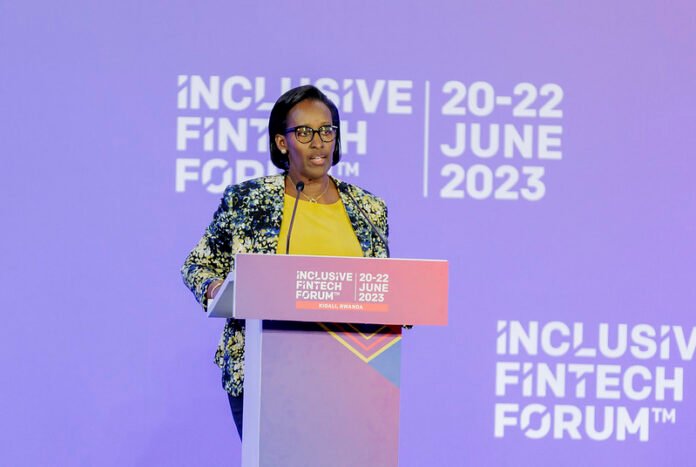The Rise of Fintech in Africa: Bridging the Gender Gap
A Booming Industry
The fintech sector in Africa has experienced remarkable growth over the past decade, creating approximately 300,000 jobs. This surge is projected to escalate, with estimates suggesting the industry could reach a staggering $1.5 trillion by 2030. As digital financial services become increasingly vital, the potential for economic transformation is immense. However, this growth comes with challenges, particularly concerning gender equality.
The Gender Gap in Fintech
Despite the promising advancements, the fintech landscape remains starkly imbalanced. Women own only 3.2% of fintech firms in Africa and a mere 1.5% globally. Furthermore, women-led ventures account for just 1% of the industry, while women represent only 28% of the workforce in science and technology (STEM) fields. This disparity highlights a significant barrier to achieving full inclusion in digital financial services.
Progress in Financial Inclusion
In Rwanda, fintech platforms have made strides in enhancing women’s access to financial services, with a notable 27% increase from 2012 to 2016. Similarly, Kenya has witnessed a dramatic rise in financial inclusion, with mobile banking elevating access from just 26% in 2006 to an impressive 84% in 2021. Yet, the broader picture reveals that as of 2020, only 37% of women in Sub-Saharan Africa had a bank account, compared to 48% of men. This gap underscores the urgent need for targeted efforts to empower women in the financial sector.
Jeannette Kagame’s Vision
First Lady of Rwanda, Jeannette Kagame, is a vocal advocate for leveraging fintech to drive economic growth and financial stability. At the Women in Fintech forum, she emphasized that the current progress is insufficient. Kagame argues that financial backing for women-led fintech solutions should come with strong incentives—not as charity, but as a recognition of women’s equal capabilities.
She insists that inclusion must be intentional, systematic, and compulsory to harness the full potential of women’s talent and expertise. “By limiting the space for women in Finance and Technology, we are not just failing women; we are failing everyone,” she stated, highlighting the broader implications of gender inequality in the sector.
Challenging Mindsets
Kagame encourages women to reject limiting beliefs that hinder their participation in fintech. She urges them to abandon the notion of being "guests" in male-dominated spaces and to combat the imposter syndrome that often plagues women in technical fields. Instead, she advocates for a mindset shift, where women recognize their capabilities as assets rather than liabilities.
Moreover, she calls on women to embrace mentorship roles, inspire younger generations, and demand accountability from regulatory frameworks. By doing so, they can amplify their voices and influence in spaces where they may currently be underrepresented.
The Business Case for Inclusion
At a panel discussion titled "The Business Case for Women in FinTech," Inez Murray, CEO of the Financial Alliance for Women, highlighted the critical need for women to occupy positions of power within the fintech ecosystem. With only 72 women using fintech for every 100 men, the gender gap in usage is three times greater than that of access to banking or mobile phones.
Murray pointed out that a 2020 survey of 167 global fintechs revealed a concerning lack of awareness regarding the female economy, valued at $261 trillion. This disconnect indicates that not only is there an access gap, but also a significant disparity in how fintechs engage with women as potential customers.
Addressing the Funding Gap
Paula Ingabire, Rwanda’s Minister of ICT and Innovation, underscored the funding gap as a major obstacle for women in fintech. Women often receive lower pay than their male counterparts, which exacerbates the challenges they face in accessing financial resources. According to the World Bank, women-owned small and medium-sized enterprises in Africa encounter a staggering $42 billion credit gap.
The statistics are telling: among the top 1,000 fintechs globally, only 68 are led by female CEOs, and women hold an average of just 11% of director positions. These figures highlight the urgent need for systemic changes to foster a more inclusive environment in the fintech sector.
The Path Forward
As the fintech industry continues to evolve, the call for gender equality becomes increasingly urgent. Women must be empowered to take on leadership roles and contribute to the innovation that drives the sector forward. By addressing the existing gaps in access, funding, and representation, the fintech landscape can become a more equitable space for all.
The journey toward gender parity in fintech is not just a women’s issue; it is a societal imperative that requires collective action and commitment from all stakeholders. As we look to the future, the potential for fintech to transform lives and economies is immense, but it must be inclusive to truly realize its promise.

